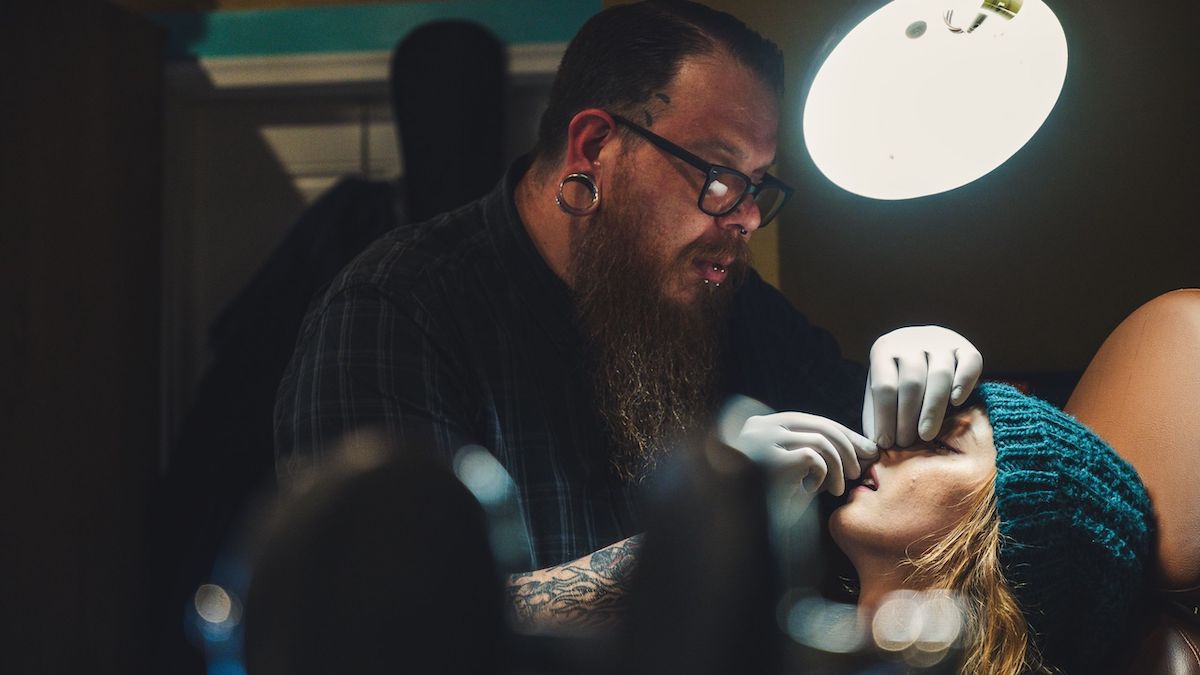
3 Best Seattle Piercing Shops
-
607 Broadway E, Seattle • Capitol HillVishak G - My wife got her naval pierced here and it healed so well
-
2. Absolute Ink11614 Ambaum Blvd SW, Seattle186 karma
-
2800 Southcenter Mall, Seattle72 karma
Piercing Shops Near Seattle
-
1. Clever Rebel29500 Pacific Highway S, Federal Way
-
3000 184th St SW 112, Lynnwood
-
235 Main Ave S, Renton
Body Piercing and Care
Piercing isn’t for everyone, but when you’re taking that leap and refreshing your appearance with a little sparkly or shiny piece of body jewelry, you’re going to need to take necessary steps for proper aftercare to ensure your new piercings heal properly.
So where to start? Listen to your piercing professional, first and foremost and ask questions specific to the type of piercing you get. They’ll give you all the instructions you need to care for your piercing as it heals in the following weeks after the procedure. But let’s start with some basics.
Keep Your Body Piercing Clean
To properly care for your body piercing, you’ll need a sterile, additive-free saline solution, gauze pads and medical-grade soap. You can usually find saline solution at your local pharmacy, labeled as saline wound wash, but make sure the only ingredients are sodium chloride and water (saline solution for contact lenses is not recommended).
If saline solution isn’t available, you can dissolve ⅛ to ¼ teaspoons of non-iodized sea salt into one cup of warm distilled water. Be precise with measurements, as too much sea salt in the solution can irritate the piercing. Be sure to wash your hands thoroughly with soap and warm water before you clean your piercing to prevent bacteria from causing infection.
To clean your piercing with a salt soak (recommended once or twice a day), soak a gauze pad in saline solution for five to ten minutes, then gently work around the piercing before giving it a light rinse with water afterward to remove any residue. Pat dry with a clean, disposable paper towel or tissue (cloth towels can harbor bacteria and cause infection, and are more likely to snag on your jewelry).
Your piercer may also recommend a mild, clear, medical-grade soap that is free of dye, fragrances, or triclosan, such as PurSan, which is specifically designed for piercings. Soap cleanings are recommended once daily, and can be done easily by applying a little soap around the piercing with warm water, and rinsing off all residue before drying.
Make sure your bedding is regularly washed and changed. You can slip a clean t-shirt over your pillow daily as a workaround to constantly washing pillowcases.
Things To Avoid
Don’t fiddle with your jewelry with your hands—this is how infections start, especially if you haven’t washed your hands thoroughly.
Don’t use any ointments or lotions that might slow the healing process or cause infection. Avoid baths if you can, as bath water harbors bacteria. Showering is the best practice as your piercing heals.
Avoid submerging your piercing in swimming pools, lakes and hot tubs. If you must, you can cover your piercing with a waterproof-sealed bandage.
Avoid tight clothing. If your piercing is in an area that rubs against clothing and causes friction, it can impact the healing process and create added scar tissue around the piercing.
Oral Piercings Aftercare
In addition to using saline solution to keep lip and cheek piercings clean on the outside, oral piercings can be kept clean with an antibacterial or antimicrobial alcohol-free mouthwash and sea salt water solution rinse after every meal. Rinse for 30 to 60 seconds, four to five times a day.
Your oral piercing will have a period of swelling and light discharge for the first few days after you get it. This is normal. You can help reduce swelling by dissolving ice inside your mouth, taking an ibuprofen, and sleeping with your head elevated above the heart those first few nights.
Be Patient
Oral piercings heal from the outside in, making you think it’s healed sooner than it really is. Follow through with the full healing process by maintaining excellent oral hygiene, a healthy diet, and staying away from smoking and alcohol. Also, avoid touching the jewelry unnecessarily so it doesn’t inflame the piercing.
Eat Right
Because you’re dealing with a piercing around the mouth, proper eating is highly advised. Avoid spicy, salty, acidic, or hot temp food and beverages for the first few days. Mushy foods like mashed potatoes and oatmeal should be avoided because they will stick to the jewelry inside the mouth. Cold foods and beverages are more soothing and also help reduce swelling. Always eat slowly, taking small bites of food to keep your teeth from catching your jewelry. And always remember to do a mouthwash rinse every time after you eat.
Listen To Your Piercer
Your piercer is the best advisor for your specific piercing. They are there to answer any questions or concerns you might have. If you have issues concerning the healing process, you should contact them immediately. Don’t remove the jewelry from the piercing until your piercer has done so first. You’re in good hands when you’re working with a professional.